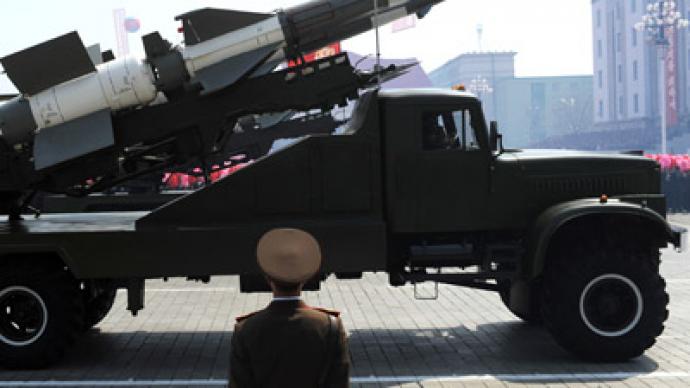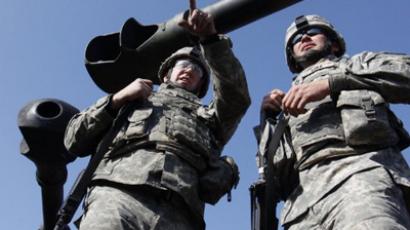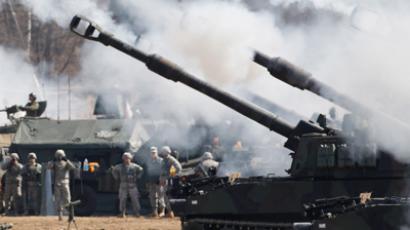Korean peninsula teeters on brink of war – Pyongyang

War between North and South Korea could break out at any moment, an ambassador from Pyongyang told the UN. He accused Seoul of instigating conflict and ‘increased hostilities’ towards Pyongyang.
Ri Tong-il, North Korea’s ambassador to the UN, said in an address that “no one knows when war will break out” between the two antagonistic nations.“The situation on the peninsula is on the brink of explosion,” Ri said, adding that North Korea is a nuclear state not subject to the Nuclear Non-Proliferation Treaty (NPT), which he condemned as “blindly” supportive of the US.He went on to say that the six-way talks that tried to persuade Pyongyang to end its nuclear weapons program had failed. The head of the International Atomic Energy Association described Pyongyang’s stance as “deeply troubling.” The UN also condemned the country’s “military-first policy,” and called for communist ruler Kim Jong-Un to work to raise the country’s living standards."I continue to be concerned with both the human rights and humanitarian situation in the country," UN special rapporteur Marzuki Darusman said in a statement. “Slow economic growth coupled with what is known as a 'military-first policy' will of course be detrimental to the welfare of the people of the Democratic People's Republic of Korea.”Darusman stressed that Pyongyang was putting its nuclear ambitions over the wellbeing of North Koreans, 60 percent of who suffer from malnutrition and food shortages.Washington cut off aid packages to North Korea earlier in April following Pyongyang’s failed attempt to test a long-range missile. The launch was widely perceived by the international community as a veiled attempt to see if a nuclear warhead could be carried on the missile.The US has been steadily increasing its military presence in South Korea. Washington claims the buildup is purely defensive, and is not a sign of imminent military action against the North.The most recent reinforcements were announced in July when the US said it would deliver more than 80 MRAPs (Mine resistant ambush proof vehicles). Currently, over 28,000 US soldiers are stationed in the South.The reinforcements, according to Army spokesperson Lt. Col. Michael Sennett, are “part of the Army’s continuing rebalancing efforts in the Pacific region.”The US has also increased its military footprint in neighboring Japan with its deal for a missile defense radar system to be built there in September. Secretary of Defense Leon Panetta said that the measure was purely defensive, and aimed at cementing Japanese-US security ties.The Institute for Science and International Security gave a stark warning over North Korea’s nuclear weapons stockpile in August. They predicted that Pyongyang could have over 48 nuclear weapons by 2015 if allowed to continue with its uranium enrichment.
S. Korea ready to negotiate?
South Korea’s conservative presidential hopeful Park Geun-Hye pledged to usher in a new era of diplomacy, and promised to revive ties with the North if she is elected.Park said she was willing to meet with North Korean leaders, contrasting current president Lee Myung-bak’s hardline policies; Lee cut off food aid to North Korea when he became president in 2008. “For continued and systematic development of South-North economic cooperation and social and cultural exchange, I will establish South-North exchange and cooperation offices in Seoul and Pyongyang,” Park said during a news conference. She also said that Pyongyang should end its nuclear weapons program and cease its hawkish rhetoric.The war between North and South Korea came to an end in 1953 with a ceasefire, therefore, technically both countries are still in a state of war.














